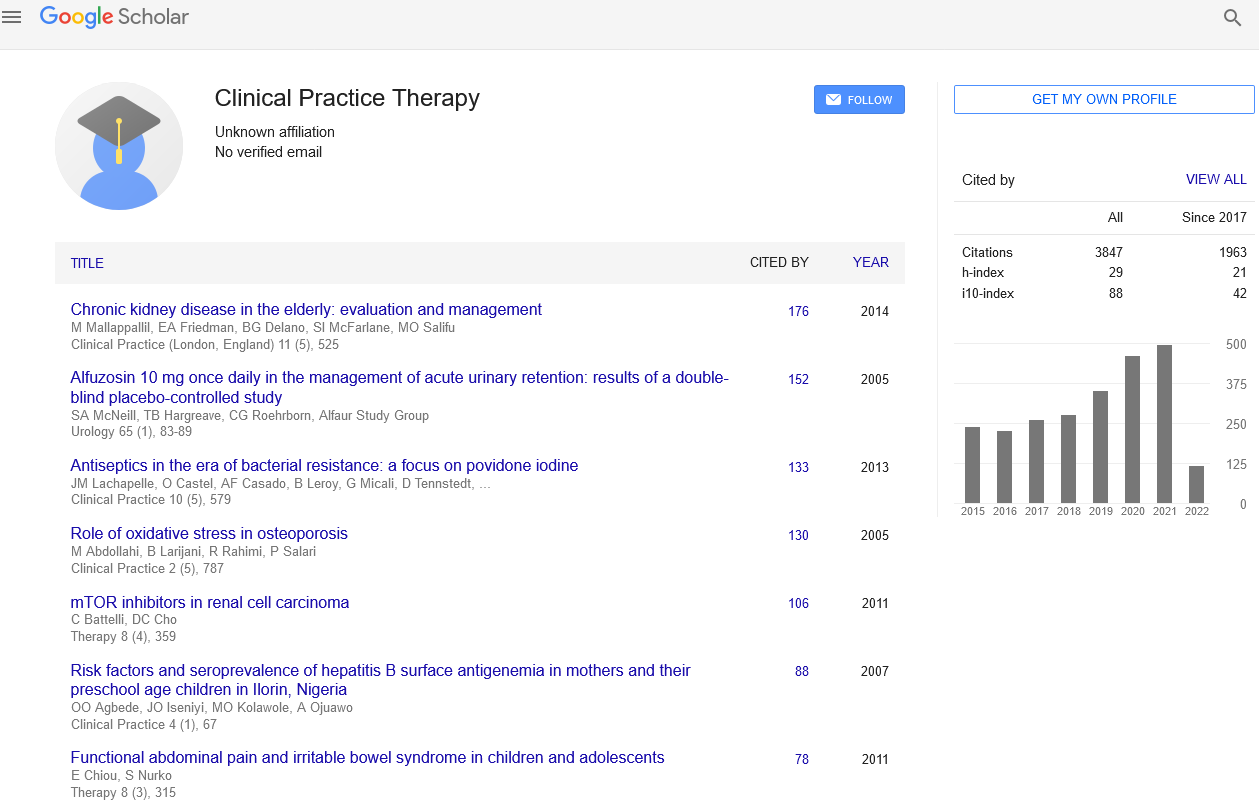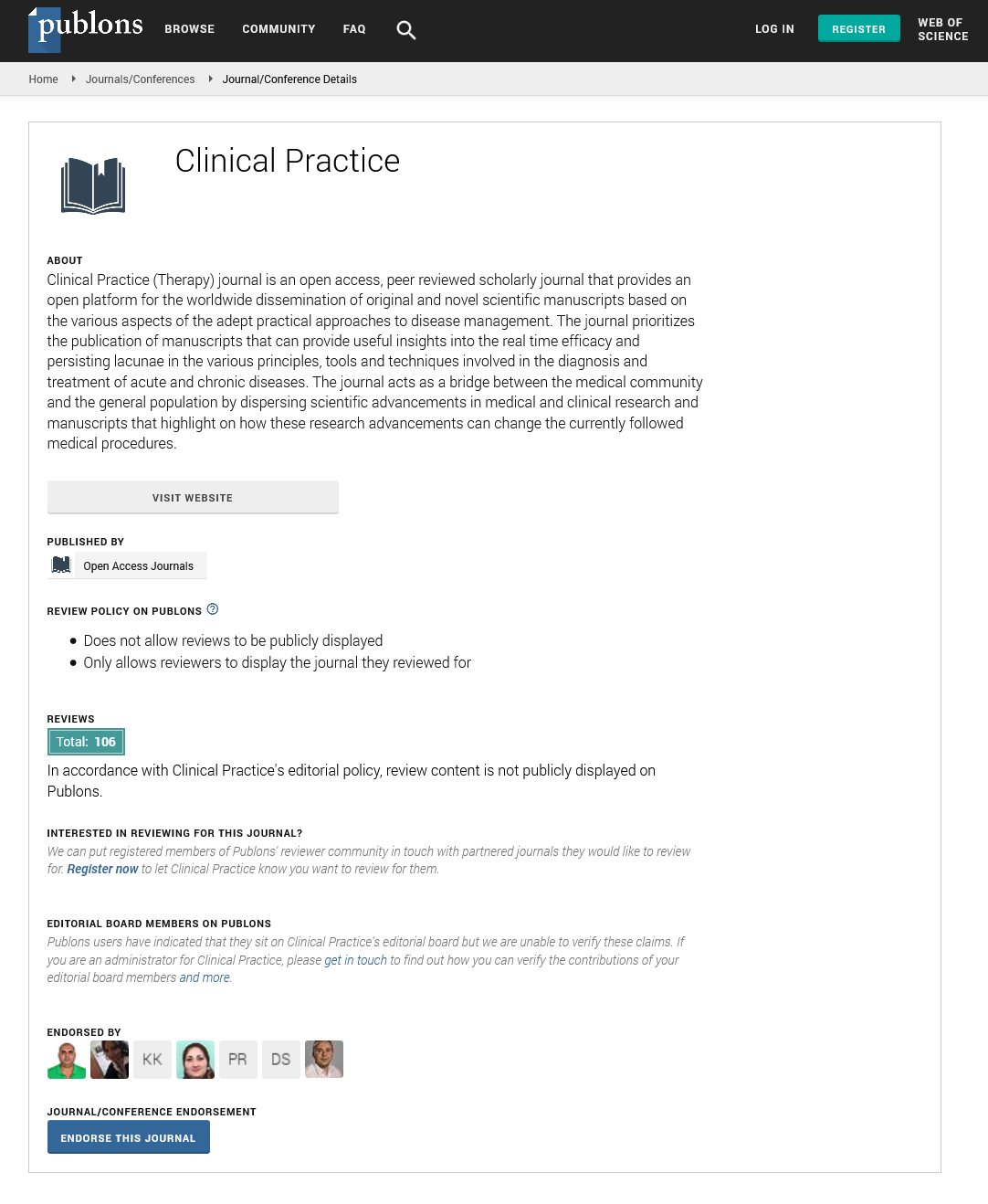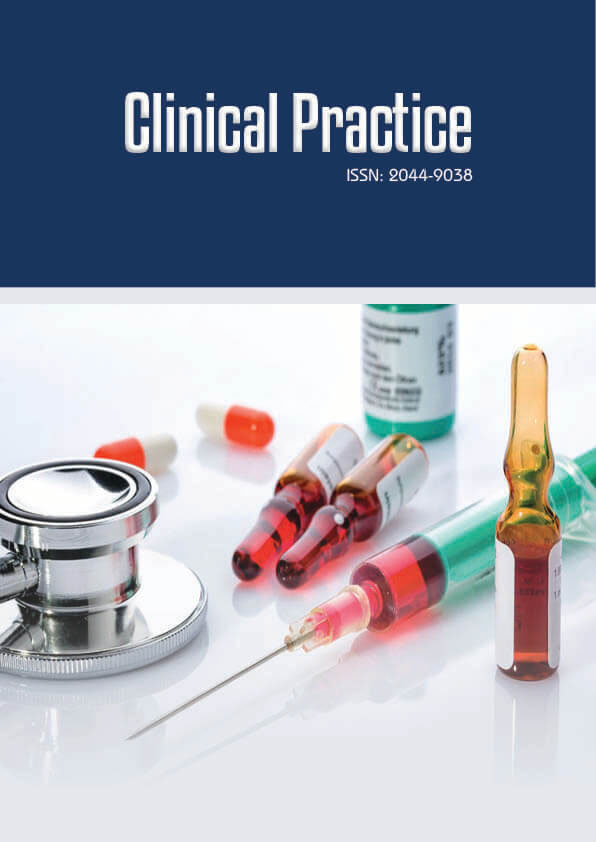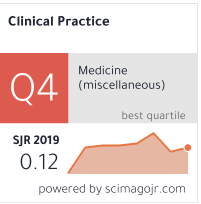Opinion Article - Clinical Practice (2017) Volume 14, Issue 2
Enhance Supervision of Terlipressin Safety among Patients with Severe Illness
- Corresponding Author:
- Yu Zhou
Hangzhou First People’s Hospital
Nanjing Medical University Affiliated Hangzhou Hospital, China
E-mail: jiazhong20058@hotmail.com
Abstract
Keywords
terlipressin, hyponatremia, hypertension, cirrhosis
Introduction
Terlipressin is a vessel V2 receptor blocker, which has been worldwidely used to better stop upper digestive tract severe bleeding resulting from portal hypertension in cirrhosis. Terlipressin is a vessel V2 receptor blocker, which has been worldwidely used to better stop upper digestive tract severe bleeding resulting from portal hypertension in cirrhosis. Nowadays Terlipressin is applied for other diseases including hepatorenal syndrome [1], shock [2], ascites, and even with prevention of little-liver syndrome, etc., according to the most up-todate clinical practical guideline of Terlipressin. However,based on authors’ previous practice and evidence of the latest report [3], it is more likely to lead to severe hyponatremia [3] and hypertension due to its adverse effects, which is difficult to control and then ultimately push patients with severe illness into potential risky of fatal consequence such as spontaneous cerebral hemorrhage or worsening of kidney failure or complexing the general conditions of patients during therapeutic course. Now is the time to remind physicians to focus on the pressing issue, and to keep minds of raising their awareness of Terlipressin’s adverse effects.
Foremost, multiple disciplinary teams (MDT) should outline the indication of Terlipressing before application of Terlipressin. Secondarily, the hospital will keep an open eye on adverse effects of Terlipressin to ensure the safety of patients with severe illness. The authorities should enhance supervision guarding against excessive Terlipressin use or misuse of Terlipressin. Now is the time to speed up the establishment procedures to make sure that all phases of Terlipressin use are retraceable and the counterfeit Terlipressin will be severely punished. Sample tests amid the severe patients should be groundwork at uncertain time to improve surveillance risk of Terlipressin.
Strict indication for Terlipressin and measures will be taken to protlegal interests of patients. The againster will be put on a blacklist that will be punished at regular, and the physicians’ principations will be limited in the future. Terlipressin doctors all tend to take for granted, but it really has to wise up to the fact that right drug in right time is crucial, helping to protect the patients from unexpected damage as well as life threatening. The last, the root cause for misusing of Terlipressing is the physicians themselves who may chase gray income or are lack of knowledge about Terlipressin. For example, if the patients with cirrhosis is ongoing hepatic bleeding and infectious shock, Terlipressin should be forbidden according to authors’ experience, otherwise, it may induce cerebral stroke mainly due to blood-clot dysfunction and hypertension. If the kidney failure is resulting from hypotension or infection but not hepatorenal syndrome, Terlipressin is not suitable for use.
Conclusion
Terlipressin should be strictly administrated for the patients’ safety. Everyone should get to know the latest guidance of Terlipressin and each caution notes in the instruction for it.
Acknowledgement
The authors would like to acknowledge Dr. Jia Zhong who reviewed and revised the manuscript.
Fund
No
Declaration
All authors declare that they have no conflicts of interests concerning the paper.
References
- Mattos AZ, MattosAA, RibeiroRA. Terlipressin versus noradrenaline in the treatment of hepatorenal syndrome: systematic review with meta-analysis and full economic evaluation. Eur J Gastroenterol Hepatol 28(3),345-351 (2016).
- Michel J, Hofbeck M, Spiller G, et al. Safety and Efficacy of Terlipressin in Pediatric Distributive Shock: A Retrospective Analysis in 20 Children. Paediatr Drugs 19(1),35-41 (2017).
- Sima M. Pokorný M, Paďour F, et al. Terlipressin Induced Severe Hyponatremia. Prague Med Rep 117(1),68-72 (2016).



